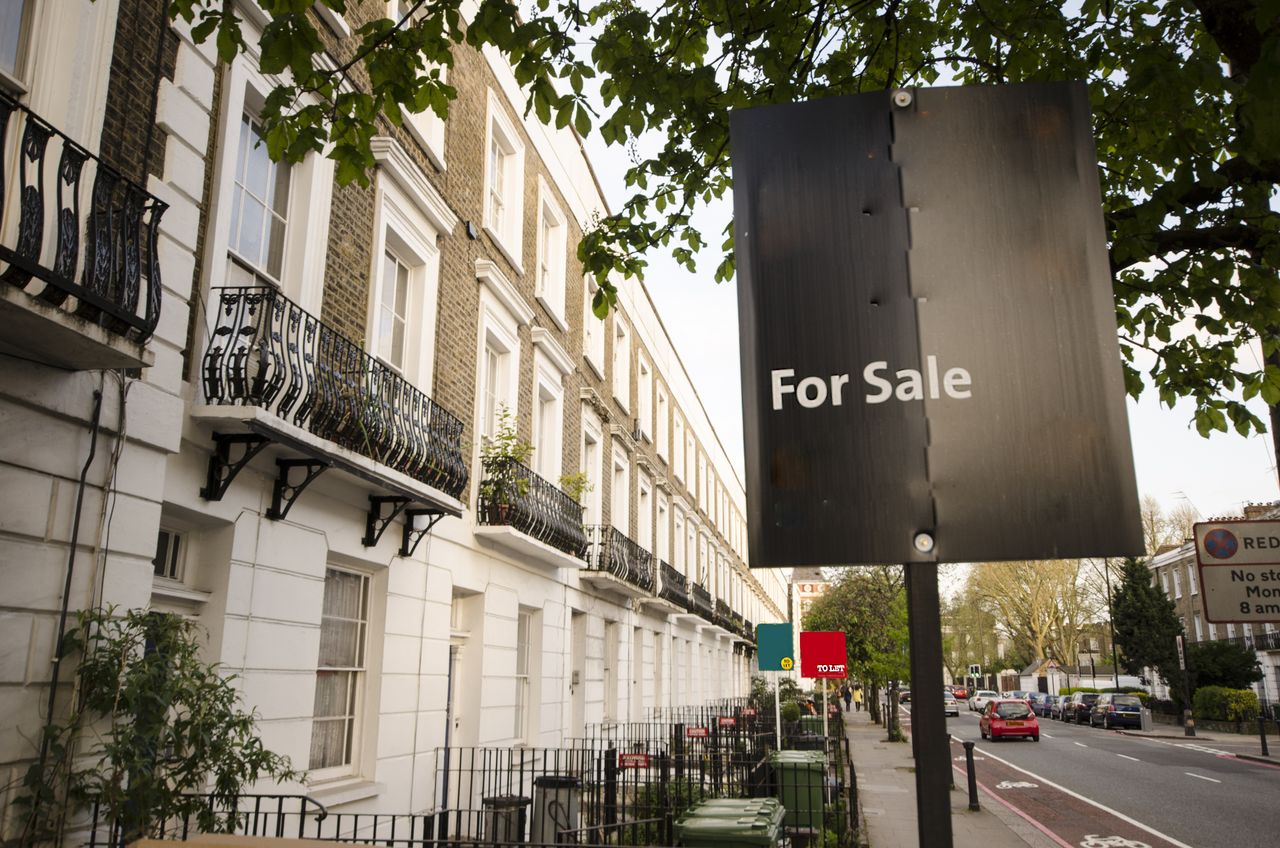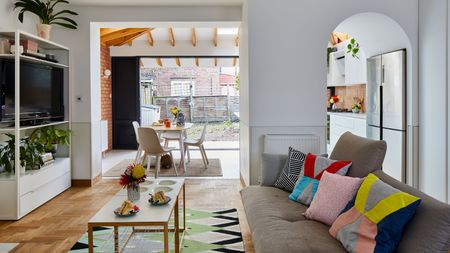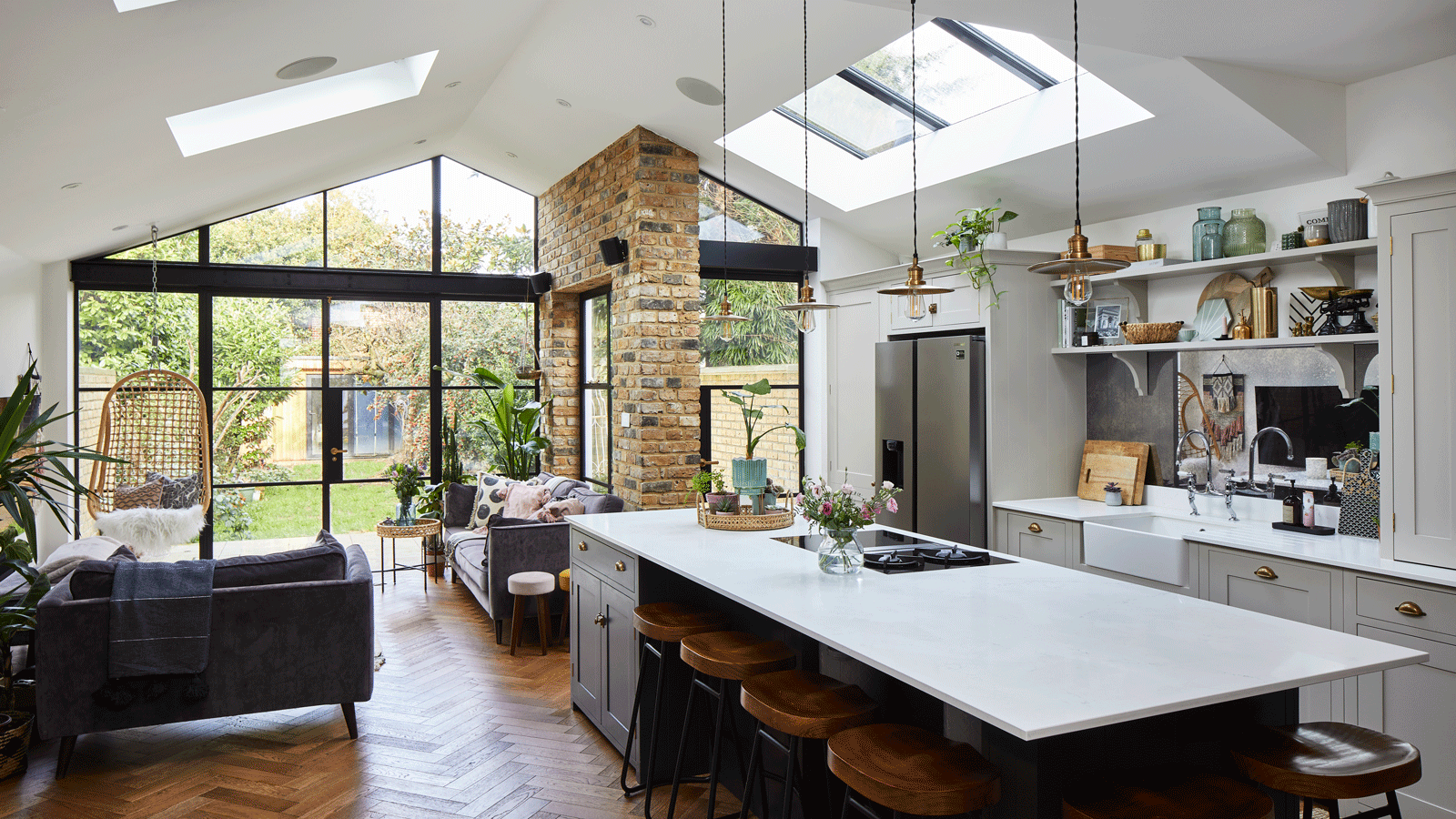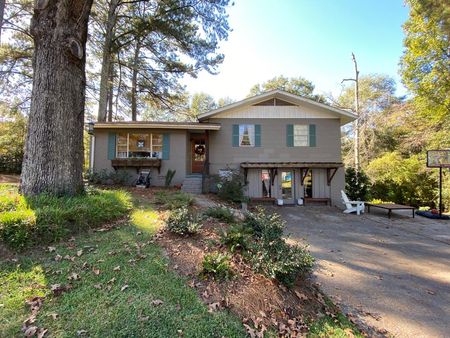

Wan to know how to sell your house fast, and for the best price possible? Selling a house is always stressful, but doubly so when the property market is slow or uncertain (yep, we're thinking Brexit). Fortunately, there are tried and tested ways to ensure that your house gets interest – and, most importantly, that it actually sells.
Follow the steps that’ll get you to a successful sale with our guide – and find more helpful advice on our property pages.
- How to sell a house quickly – use our tips for a faster sale
- How to sell your house in a buyer's market
- An essential house moving checklist
1. Get your home ready
Get your mortgage sorted
Getting your own mortgage sorted for your move is a must early on in the process. Start by talking to a whole market mortgage advisor to see what you could afford. We've teamed up with online mortgage advisor Habito. Go to our page on finding a mortgage deal to discover more or use the mortgage comparison form (below), then speak to an advisor for free, unbiased advice. They'll help you find the best deals, and answer your queries, plus use their insider knowledge to negotiate the best deal based on your financial history and current status, too.
It’s worth looking at your home objectively before you put it on the market. Now’s the time to boost its kerb appeal and to declutter rooms and give each a purpose (think home office rather than junk room, for example). Find out more about presenting your home for sale, but work through the checklist below first. Home improvements probably aren’t worth it at this stage, but do:
- Clean windows to brighten the interior;
- Tidy the garden;
- Fix anything that's broken or leaning;
- Sort out scuffed or dirty paintwork;
- Clean grout;
- Make sure surfaces aren't covered by accessories;
- Sort the interior of kitchen and other built-in cupboards – buyers will look inside and if they’re crammed they might think there’s a shortage of storage;
- Full-on redecorating is generally not worthwhile but if your taste is very bold, or rooms look dingy, then consider it.
2. Decide on who's selling your home
Choose between a traditional estate agent or an online one – but know the pros and cons first.
Traditional estate agents
You can opt for one agent – sole agency – which will probably mean you pay a lower commission; or use more than one agent. You’ll pay a larger commission on the sale if you use multiple agents although in theory it could speed up the sale.
Although you’ll pay more in commission with a traditional agent against newer online services, you should get the benefit of local market knowledge. Expect an agent to show you evidence of local sold prices when they value your home.
It’s worth getting valuations from three different agents before deciding on which one to go with. It’s possible to negotiate on commission, so don’t be afraid to ask.
Ask which online portals they advertise with to ensure you’re getting coverage on all the major sites such as Rightmove, Zoopla, OnTheMarket and PrimeLocation.
Check the contract term, too. If you’re unhappy with the agent’s service you need to be able to change to another.
Make sure the fee is only payable on exchange of contracts as otherwise you’ll be out of pocket even if the deal falls down before it’s legally binding.
Online estate agents
Online estate agents charge lower fees, but be aware that you’ll have to pay the fees upfront rather than on the sale of the property, and if your property isn’t sold you’ve lost the money.
An online agent may also tie you into other services like conveyancing or mortgage broking. Check any contract carefully.
Find out how they vet buyers. You’ll probably be showing people round and it’s your time that will be taken up by those who are never going to be in a position to buy.
Remember that an online agent is unlikely to have in-depth local market knowledge, so make sure you’re well informed on selling prices in your area before you agree an asking price.
Sell your home yourself
There are sites where you can list your home but beware of valuing it inaccurately or failing to negotiate a good price as this could wipe out what you’ve saved on an agent’s commission.
Other providers offer packages with valuation and photographs plus listing on sites like Rightmove.
Get more detailed advice on how to choose an estate agent to sell your house in our guide; we've also deep dived into whether a traditional or online estate agent is better – it's worth a read, too.
3. Agree a selling price
Take the advice of agents but make sure you’ve done your homework, too, so you can agree a price at which your home will be marketed initially.
Find information on sold prices in the area via the Land Registry’s UK house price index. Rightmove and Zoopla can also reveal what local properties have gone for. Online estimates should always be treated as a guide. They can be under or over by a considerable amount so local property knowledge is invaluable. Bear in mind that you’ll probably get offers at 5 to 10 per cent under the asking price.
4. Find a solicitor or conveyancer
Although you won’t need a legal professional until you have agreed an offer, now’s the time to find someone you’ll be happy to work with.
Ask for personal recommendations and get quotations, and remember that cheapest isn’t always best. You should reassure yourself that your file won’t be passed from pillar to post and your conveyancer will be responsive to contact.
Your legal professional will send you forms to fill out to provide information about the property and what’s included in the sale and returning these promptly will ensure you’re ready for the selling process to get going swiftly once you receive an offer.
5. Get ready for viewings
You’ve already done the major decluttering, sorted out the snags, and touched up any timeworn decor, but getting set for each viewing is worthwhile. Read our guide to what to look for when viewing a property to envision how your potential buyers might see your property. We'd recommend following these steps, too:
- Don't cook anything pungent the evening before;
- Open windows beforehand to air rooms;
- Empty bins;
- Avoid fogging up bathrooms just before viewings are scheduled;
- Open curtain or blinds wide to maximise daylight;
- Put on the heating if it's cold;
- Go out if the agent's conducting the viewing – and that means everyone. No room should be off limits.;
- Take the dog out for a walk.
6. Receive feedback
Your agent should give you feedback on each viewing. Much of it probably won’t help you sell your home – if viewers don’t like the house’s situation there’s nothing you can do about that. Do be prepared to act on comments if a matter can be remedied simply, though. For example, dark rooms might be brightened with mirrors. And if you're not getting feedback from the agent? Chase them up and ask them.
7. Get an offer
Agents will pass on any offer to you. If it doesn’t get near enough to your asking price you can reject it or get the agent to negotiate it up.
When you’re ready to accept an offer, tell the agent, who will confirm and prepare the memorandum of sale to go to the solicitors on both sides. After this, the agent should stop marketing the property.
An offer isn’t legally binding until exchange so you could in theory find another buyer in the meantime, but remember that your buyer will start to incur costs, so imagine the boot on the other foot. If a buyer saw you were still marketing, they’d be advised to walk away.
8. Go through the conveyancing process
Your solicitor or conveyancer will now do the legal work on the sale. Be prepared to answer any additional questions about the property the buyer’s solicitor raises with yours.
Keep in touch with both your agent and your solicitor to keep up to date on where everything has got to. Yours is one of many sales to them, but the only one you care about so it’s worth making sure everything is proceeding.
You should expect appointment(s) to be made for a valuation for the purchaser’s mortgage and the survey they have asked for.
A date and time will be arranged for exchange of contracts. At exchange the deal becomes legally binding on both sides. If you pulled out, the buyer’s deposit would be returned with interest, and you could be sued for breach of contract.
9. Complete a house sale
The completion date will have been agreed before exchange via the solicitors although it’s often two to four weeks after exchange. Make sure you leave all the fixtures and fittings as agreed when you move out. The buyer will be given the keys only once it is confirmed that the purchase money has been transferred. Your solicitor will pay off your mortgage and also register the change of ownership with the Land Registry.
10. How to prevent a house sale falling through
It is estimated that around 300,000 house sales fall through every year, or three in 10 transactions. There are three main reasons why this happens:
- Problems somewhere further down the chain: eg, the buyer couldn't sell their own home, or they got turned down for the mortgage;
- The buyer wasn't satisfied with the result of the survey, or a legal search revealed an unexpected problem about the property;
- Gazundering: unlike gazumping, which affects buyers, gazundering is the buyer lowering the amount they're prepared to pay at the last minute, forcing the seller to choose between accepting a lower offer, or the sale falling through.
There's not a lot to be done about the first scenario – even if you sell to a first time buyer who comes without the complications of a chain, they still might not qualify for the mortgage. It is advisable to plan your sale, and your subsequent move, as far in advance as possible. Avoid putting yourself in a position where you have to move. Some estate agents, notably Nested, have options where they'll give you a cash advance if the property sale falls through and you have to move.
The second scenario is almost entirely within your control as seller: always be very honest about any issues with the property, and if there are any, give reassurances that they will be dealt with; make sure that they are written into the sales contract.
Gazundering is fairly rare, but if you are worried about it, consider taking out an insurance which will protect both you and the prospective buyer (in case of gazumping, or another buyer offering a higher price at the last minute). The legal and insurance firm Gazeal offers a special type of insurance on house sales that locks the buyer and seller into following through as soon as a price has been agreed. The buyer has two weeks to make sure they're satisfied with the property and can't pull out after that. It will cost you, but it will give you peace of mind.
11. Common house selling mistakes
Even if your house is lovely and is in a desirable area, don't automatically assume that it will sell straightaway. Especially when the market is slow – but, really, at any time you're putting your home up for sale – avoid these common pitfalls that slow down house sales:
- Not researching the estate agent: simply going with the cheapest available agent, or worse, going online only, can seriously backfire: especially in the current climate, it's important that your estate agent knows the local area like the back of their hand, and knows how to attract potential buyers who may have been looking at nearby areas but haven't considered yours.
- Not providing enough photographs: amazingly, some people still provide very limited photography of their home, although images are often the sole thing potential buyers base their opinion on when selecting properties to view. Provide ample photography of all the rooms and the garden (if there is one), preferably professionally done. A 360 degree view is even better, as it gives buyers a better idea of the space.
- Overvaluing. It can't be stressed enough how damaging this can be to the prospects of your property getting sold, especially now that Brexit has led to a considerable slowing down of the market. While it may be tempting to try and get more for your home, a hugely inflated price will put people off. No one likes telling a complete stranger that the price they're asking is completely unrealistic, so people just won't bother even viewing the house. Your estate agent should have been honest with you about how much you can expect: stick to that price range.
Compare mortgage deals
Use this form to see what you could afford, then speak to a Habito advisor for unbiased advice and info.
Looking for more home buying advice?
Join our newsletter
Get small space home decor ideas, celeb inspiration, DIY tips and more, straight to your inbox!

Sarah is a freelance journalist and editor writing for websites, national newspapers, and magazines. She’s spent most of her journalistic career specialising in homes – long enough to see fridges become smart, decorating fashions embrace both minimalism and maximalism, and interiors that blur the indoor/outdoor link become a must-have. She loves testing the latest home appliances, revealing the trends in furnishings and fittings for every room, and investigating the benefits, costs and practicalities of home improvement. It's no big surprise that she likes to put what she writes about into practice, and is a serial house revamper. For Realhomes.com, Sarah reviews coffee machines and vacuum cleaners, taking them through their paces at home to give us an honest, real life review and comparison of every model.
-
 Housing market forecast: home buyers are rushing to beat rising mortgage rates
Housing market forecast: home buyers are rushing to beat rising mortgage ratesThe latest housing market forecast reveals a new factor in a hot market – steadily rising mortgage rates
By Anna Cottrell Published
-
 Before & after: A broken-plan layout completes this Edwardian terrace
Before & after: A broken-plan layout completes this Edwardian terraceThese happy bunnies have the best of both worlds. Divide and conquer
By Ellen Finch Published
-
 This dark and dramatic house just oozes original charm
This dark and dramatic house just oozes original charmThe color choices for this gorgeous Victorian home may seem bold, but just take a tour and you'll be reaching for the deep teal paint too...
By Ifeoluwa Adedeji Published
-
 These are the items you’re most likely to lose when moving house - and one could be seriously costly
These are the items you’re most likely to lose when moving house - and one could be seriously costlyDon't miss these off your checklist come moving day
By Millie Hurst Published
-
 A new survey reveals the one room we'd add to our home if money were no object
A new survey reveals the one room we'd add to our home if money were no objectBecause you can never have too many books
By Millie Hurst Last updated
-
 This is what a dream home looks like in 2021 (Hint: there's a fire pit)
This is what a dream home looks like in 2021 (Hint: there's a fire pit)Get ready for the home office of dreams
By Millie Hurst Published
-
 This HGTV 'Home Town' house is on the market for under $200k
This HGTV 'Home Town' house is on the market for under $200kSee what this Laurel, MS. house from HGTV's Home Town looks like today (and make it yours for under $200,000)
By Grace Stetson Published
-
 This sunbelt city is the top destination for homebuyers looking for value – and sun
This sunbelt city is the top destination for homebuyers looking for value – and sunBuyers on the move are choosing these Southern cities in what is beginning to be known as the Sunbelt Surge
By Anna Cottrell Published